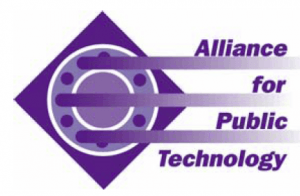This week Federal Communications Commission chairman Julius Genachowski appointed Karen Peltz Strauss Consumer and Governmental Affairs Bureau Deputy Chief.
Strauss is supposed to focus on disability issues, among other things, and will help the Commission to implement the components of the National Broadband Plan that address access for people with disabilities, including leading the effort to develop a proposed Accessibility and Innovation Forum.
“The FCC has a vital role to play in empowering and protecting all consumers and ensuring they have access to world-class communications networks and technologies” said Chairman Genachowski. “I look forward to drawing on Karen’s extensive experience with telecommunications access issues to realize those goals.”
A news release from the FCC includes a brief review of her 25 years’ experience working on telecommunications access for people with disabilities.
But the agency forgot to mention Strauss also serves on the board of directors of an industry front group — the Alliance for Public Technology. APT claims it represents the best interests of consumers, but considering who is writing the checks, that’s highly doubtful.
APT’s website suggests the group “makes policy decisions based on the potential benefit to consumers. The Board members themselves as well as APT’s member organizations serve the education, health care, social service and economic development needs of senior citizens, people with disabilities, minorities, children, low income families, rural communities, and all consumers.”
That’s true, if you, as a consumer, are for big telecom mergers like AT&T and BellSouth, which APT supported, oppose Net Neutrality, which APT feels should not be imposed on providers, liked the idea of Cingular being absorbed into AT&T’s empire of wireless, which APT also supported, and so on.
In fact, this group even praised Verizon’s willingness to invest in West Virginia:
Verizon has demonstrated a commitment to increased investment in advanced telecommunications capabilities. According to the company, Verizon invested almost $560 million in its Maryland network and $150 million in West Virginia in 2001 (2002 figures not available). Verizon added more than 31,000 miles of fiber optic cable in Maryland and 20,500 miles of fiber optic cable in West Virginia. Over 2.5 million access lines in Maryland now have access to DSL. Authorization to provide in-region long distance service in Virginia will facilitate Verizon’s capacity to build on economies of scale and scope in order to provide a high standard of service and accelerated deployment of advanced technologies to the consumers of Maryland, Washington, D.C., and West Virginia.
The only thing Verizon wants to accelerate in West Virginia is their exit.
Laughably, one of the reasons APT supports AT&T so much (besides the big checks the company writes to fund their operation) is:
With BellSouth’s entry into the Florida and Tennessee long-distance markets, AT&T began to offer 30 minutes of free long distances to its customers and inserted “thank you” messages into the time between a customer dials a number and the connection occurs. These actions demonstrate tangible benefits for consumers because of an increased number of competitors in the long distance market.
 I know that makes me feel warm all over. Who should I call first?
I know that makes me feel warm all over. Who should I call first?
Wading through APT’s public policy positions unearths absolutely no surprises. They exist to advocate for the interests of the companies that fund their operations, and that includes all the bully boys:
- AT&T
- CTIA
- Embarq
- Qwest
- United States Telecom Association
- Verizon
Despite this, APT writes with a straight face, “These companies give donations based on a shared vision for the ubiquitous deployment of high-speed telecommunications technology, but have no say in the governance of the association.”
Sure they don’t. But then again, those checks would stop coming if APT began actually representing the consumers they claim to care so much about.
It’s disappointing the FCC would want someone so closely aligned with the interests of large telecommunications companies working to implement a National Broadband Plan that is supposed to represent the public interest.
It’s just another example of the Inside the Beltway Tickle Party, where lobbyists and “dollar a holler” experts flow between government jobs, privately-funded think tanks, and the private sector. Consumers are only too aware that their best interests are not represented by employees whose loyalties change depending on what hat they wear to the office.


 Subscribe
Subscribe

So many ringers, so little time